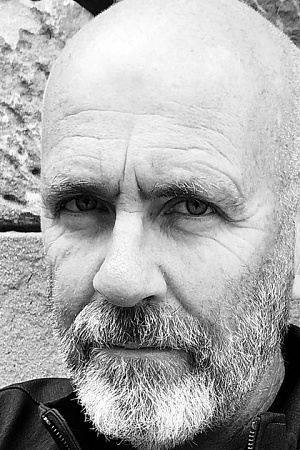In the Flesh
‘To our bodies turn we, then, that so
Weak men on love revealed may look;
Love’s mysteries in souls may grow
But yet the body is his book.’John Donne, ‘The Ecstasy’
‘...the unstable self, the fractured ego, Maud thought, who ... am I? A matrix for a susurration of texts and codes? It was both a pleasant and an unpleasant idea, this requirement that she thinks of herself as intermittent and partial. There was the question of the awkward body. The skin, the breath, the eyes, the hair, their history, which did seem to exist.
A.S. Byatt, Possession
Where he’s been is where nobody expects to have to go. You don’t ask questions about where he’s been. You look at the· body. It trembles. It sweats. It bleeds. You your mouth shut. You see the body, and you work it out.
Helen Garner, ‘What the Soul Wants’
T
here have been three years now of ‘Australian Voices’, but when in all that time have you heard a voice? The metonymic use of the word ‘voice’ to mean ‘way of using language’ has become so familiar we forget it’s figurative. But as far as sensory experience is concerned, reading this series has been about the look of typeface, the feel of paper; the only noise has been the turning of the pages. We’ve heard Australian voices in silence.
In the last few years I’ve been to a lot of literary festivals and conferences and readings to hear writers read and speak, and I am always astonished by the number of people who turn up. Why do they turn up? (Why do I turn up?) The question seems currently, for some reason, in the air: having decided several weeks ago on my topic for this essay and having, as I write this, about half finished it, I was shown an hour ago an article by Helen Garner on writers’ festivals called ‘Singing for your Supper’, in which she asks the very question to which this essay is not so much an answer as a sort of meditative response. ‘What is this powerful urge people feel,’ she asks, ‘that makes them not only buy books but pay even more money in order to clap eyes on the writers themselves, to hear them speak and read?’
If one admires the work of a writer then it is logical to want to buy and own and read the writer’s books, but is it logical to want to see the writer’s body and to hear the writer’s voice? And is it logical to complain, as one woman recently did, of disappointment in a literary lunch at which Elizabeth Jolley ‘only’ read from the manuscript of the book she is currently writing? ‘I thought,’ this woman wrote, ‘that she was going to speak.’ It was not Jolley’s fiction, the thing for which she is justly famous, which had brought the woman out to lunch. What she wanted was what she must have thought of as Jolley’s self.
What is this all about?
I don’t see (and don’t want) any easy answer, but there are certainly a few seductive-looking avenues inviting exploration. I think that the kind of occasion upon which a writer stands up to read, to speak, to be looked at and heard (‘giving a reading’, ‘giving a paper’, ‘giving a talk’: note the verb) has close connections with certain other forms of communication: gossip, letters, crime fiction, biography. Like these, it involves empowerment, pleasure, and desire. Like these, it concerns bodily presence. Like these, it tries to answer one of the questions that these postmodern times have made so hard: ‘Who?’
Continue reading for only $10 per month. Subscribe and gain full access to Australian Book Review. Already a subscriber? Sign in. If you need assistance, feel free to contact us.











Leave a comment
If you are an ABR subscriber, you will need to sign in to post a comment.
If you have forgotten your sign in details, or if you receive an error message when trying to submit your comment, please email your comment (and the name of the article to which it relates) to ABR Comments. We will review your comment and, subject to approval, we will post it under your name.
Please note that all comments must be approved by ABR and comply with our Terms & Conditions.